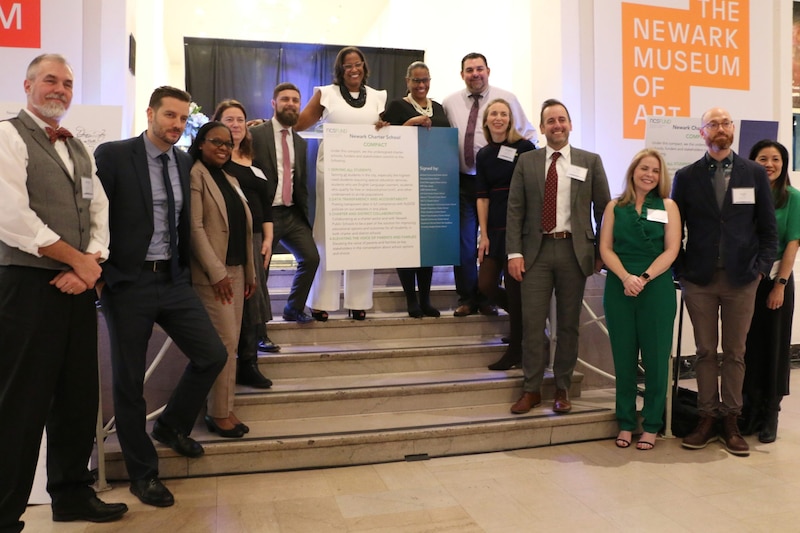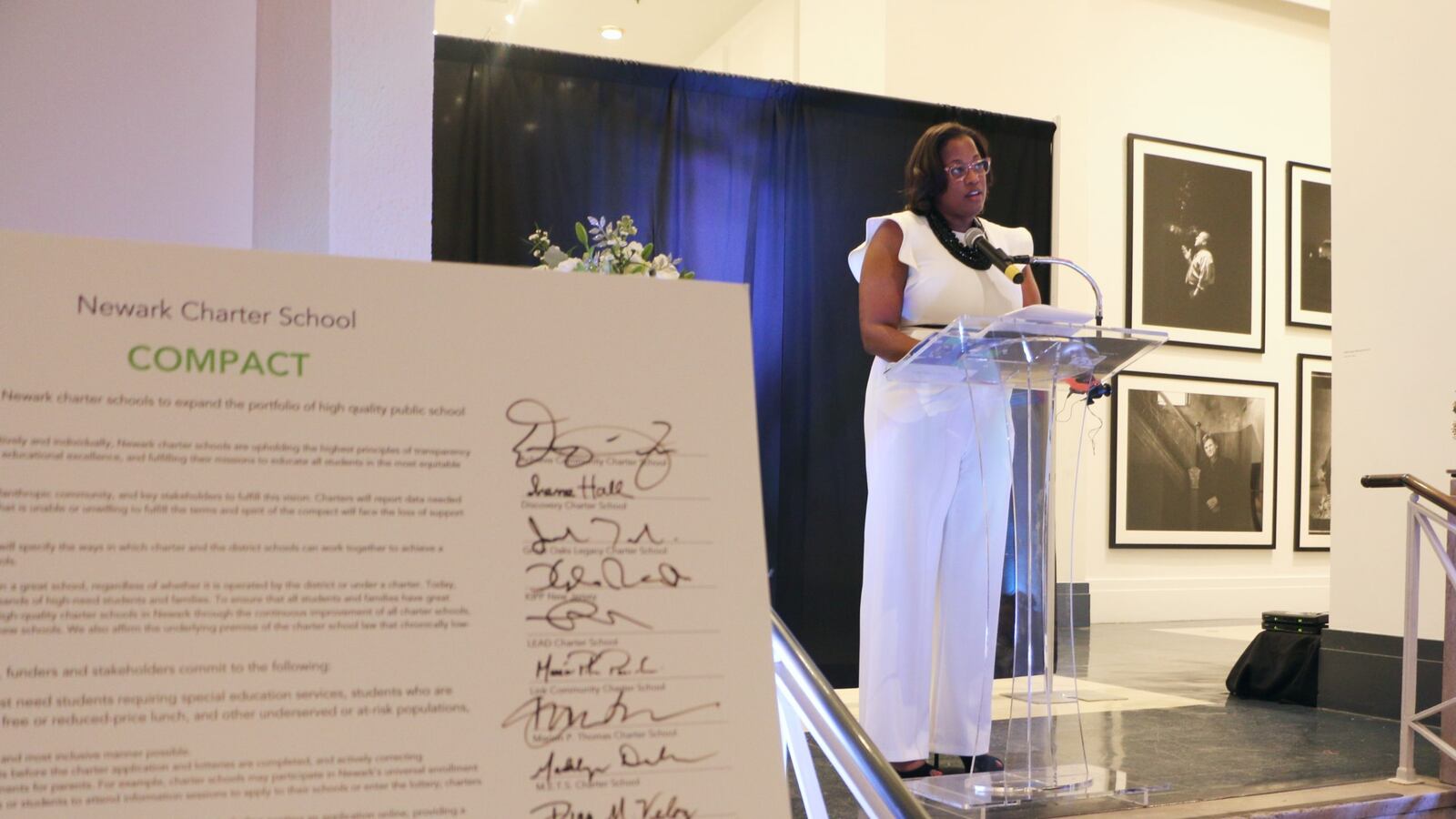After spending nearly 12 years and $55 million promoting the city’s charter schools, the Newark Charter School Fund is closing up shop.
Seeded with private money pulled in by former Mayor Cory Booker, the nonprofit helped fuel the rapid expansion of the city’s charter schools. Today, more than 35% of Newark students attend publicly funded, privately operated charter schools — a fourfold increase from 2008 when the group launched.
As critics tried to curb the spread of charters, which draw students and dollars away from the traditional school system, the fund charged into battle. It bankrolled groups that pushed pro-charter policies and supported charter friendly candidates for the city’s school board, which regained control of the district last year. The fund continued operating during this transition from state to local control of Newark’s school system partly to “protect the initial investment” in charter schools, said the fund’s executive director, Michele Mason.
Now, the bulk of the fund’s money has been spent. The governor, mayor, and state-appointed superintendents who once championed Newark’s charters have been replaced. And local charter leaders have switched gears from swift expansion to cooperation with the district.
In light of those changes, the fund has decided to cease operations, with plans to distribute a few final grants early next year and hand off some of its functions to other local groups. It considers its mission mostly accomplished, with Newark now home to a large, mostly high-performing charter sector that even its critics expect will persist.
“We have moved past the us-versus-them toward a citywide vision for all families,” said Mason, who first announced the group’s closure last month. “I really do think the Charter School Fund was a key component of moving through the high growth and the challenging needs to where we are now.”
Some civic leaders who once opposed the proliferation of charter schools have come to accept them as an option that many families — and voters — have embraced. Speaking at a farewell event for the fund Tuesday evening, Mayor Ras Baraka, who previously called for a halt to charter expansion, said leaders should put aside their ideological differences to focus on the “growth and development” of Newark’s young people.
But John Abeigon, the Newark Teachers Union president and a longtime critic of charter schools, which are mostly not unionized, said the group’s departure reflects a new era in Newark where charter growth is less assured and the district’s locally chosen superintendent is determined to draw more families back to traditional schools.
“Good riddance,” he said.
In 2008, Booker was eager to improve the city’s schools but lacked authority over the Newark school system, which the state had taken over years earlier. So, as a longtime proponent of school choice and a charter school board member, he turned his attention to spreading charter schools. To that end, he raised about $20 million from several local and national funders, including the Victoria, Prudential, Bill & Melinda Gates, and Walton Family foundations. (Those groups provide funding to Chalkbeat.)
“In my first term as mayor, we had incredible success with thousands of kids getting access to these great charter schools,” said Booker, now a U.S. senator running for president, in an interview last year where he recalled forming the fund.
Just two years later, Booker secured $100 million from Facebook CEO Mark Zuckerberg plus a matching amount from other private funders. While most of the money was aimed at overhauling traditional schools, more than a quarter of it went to charter school causes, including the fund. (The group that managed Zuckerberg’s donation closed its doors in 2016.)
The fund used its vast resources — Mason estimates that it managed about $55 million during its nearly 12-year existence — to help existing charter schools expand and new ones open. Early on, “the focus was on growth, growth, growth,” Mason said.
It also paid for school-improvement efforts, convened monthly meetings of charter school leaders, and got many of the leaders to sign an annual compact affirming their intention to serve students with special needs and cooperate with the district, among other commitments.

Maria Pilar Paradiso, who heads Link Community Charter School, said the fund lent its support when Link applied to convert from a private school to a charter in 2014. Later, the fund paid for groups to help Link strengthen its teacher-mentoring and special-education programs.
“They were just an incredible resource for us,” Pilar Paradiso said.
The fund also bankrolled more controversial efforts. It partnered with the district to establish a common application system so families would not have to apply to traditional and charter schools separately. The system’s stated goal was to give families easier access to more schools, but charter school critics saw it as yet another ploy to boost charter enrollment.
Meanwhile, the charter expansion that the fund accelerated left the district with fewer students and per-pupil dollars, adding to budget constraints that led to school closures and layoffs in past years. And while some charter schools had longstanding ties to local churches and community groups, the influx of private money for new charter schools over the past decade fueled the perception among some residents that wealthy outsiders were trying to replace Newark’s traditional schools.
“Charters were under the radar — then this money came in,” said Mason, who took over the fund from her sister, Mashea Ashton, in 2016. “People felt like it was a deal made in the dark with the devil.”
To combat those perceptions, the fund paid for efforts to support local parents who spoke in defense of charter schools. With fund money, groups such as the now-defunct Parent Coalition for Excellent Education helped register parents to vote and assisted them in writing op-eds and staging rallies in Trenton and Newark to promote charters.
In 2016, that group joined forces with Baraka and politicians from Newark’s North Ward to endorse a “Newark Unity” slate of school board candidates. Since then, the fund has assembled a coalition of like-minded groups — including KIPP New Jersey, North Star Academy, and Teach For America, all of which have received fund money — to recruit and coach potential candidates for the slate.
At Tuesday’s farewell event, Flohisha Hill, a current board member who was on the “unity” slate, thanked Mason and Ashton for supporting her election campaign “when no one else believed in me.”
“Nobody in Newark wanted to see charters in our city,” Hill said. “But you were here. You stood your ground.”

